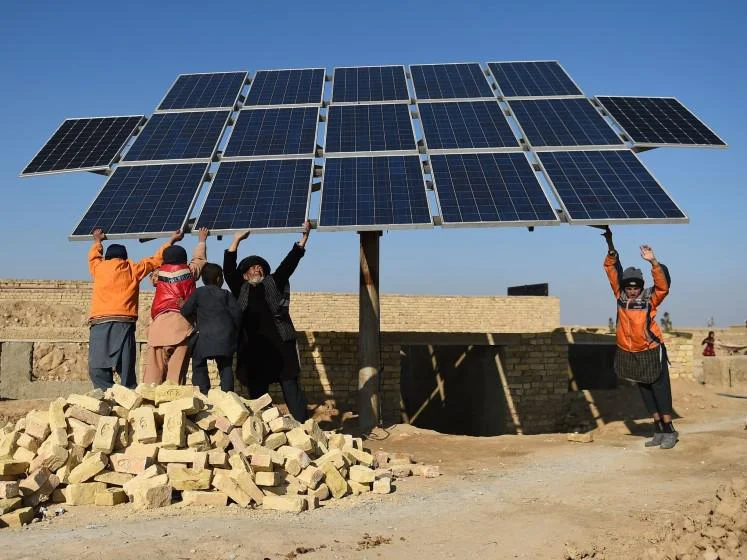Call for clean energy in fragile states

David Cameron, Ellen Johnson Sirleaf, and Donald Kaberuka – co-chairs of the Council on State Fragility – spearhead Call to Action with the g7+ Group of conflict-affected states.
Foreign aid donors and private companies need to ramp up investments in clean energy to break the cycle of poverty and support recovery from COVID-19 in fragile states, urges a new global Call to Action. The Call is led by the Council on State Fragility - co-chaired by former UK Prime Minister David Cameron, former Liberian President Ellen Johnson Sirleaf, and former President of the African Development Bank Donald Kaberuka - and the g7+, an intergovernmental organisation bringing together 20 countries affected by conflict and fragility.
Mr Cameron said: "Of the 800 million people in the world without electricity, almost 90% of them live in fragile states. Global action on climate change is vital, and we must not leave those in fragile countries behind. Investing in renewable, distributed, and decentralised energy systems is cost-effective, practical, pro-poor, pro-green, and is particularly helpful in fragile states. As host of this year’s COP26 and G7 Summit, the UK, in particular, can send a strong signal to other donor countries and lead efforts to invest in local, renewable energy sources. This should be a priority for development. To reduce poverty and increase stability – for those in the world’s most vulnerable places, and for us all."
The Powering up energy investments in fragile states Call to Action launches today at an online event including Mr Cameron; Ms Sirleaf; Dr. Francis Mustapha Kai-Kai, Minister of Planning and Economic Development for Sierra Leone and Chair of the g7+; and Maeen Abdulmalik Saeed, Prime Minister of Yemen.
The Call to Action says investments in green technologies, such as solar mini-grids, are needed urgently to bring affordable and sustainable sources of electricity to millions living in countries affected by fragility. The Call’s current signatories include Rwandan President Paul Kagame, Afghan President Ashraf Ghani, Sudanese Prime Minister Abdalla Hamdok, Yemeni Prime Minister Maeen Abdulmalik Saeed, Former President of Ireland Mary Robinson, Former President of Timor-Leste José Ramos-Horta, and 40 other political leaders and organisations.
Renewable, off-grid solutions are cheaper and more resilient in conflict-affected settings. Yet despite their feasibility and value, aid donors’ financial commitments for off-grid solutions in countries with the largest energy access gaps - of which the majority are fragile - is just 1.1% of the total global financing for electricity, amounting to only $460 million globally in 2018.
Dr. Kai-Kai said: "Sierra Leone and other g7+ member countries cannot achieve our goals of reducing poverty, creating jobs, and ensuring lasting peace and stability if a large portion of our populations cannot access electricity. Lack of access to sustainable and affordable electricity has made it difficult for our countries to attain economic self-reliance, a necessary
condition for sustaining peace and to cope with crisis such as COVID-19. We also know that our people will be disproportionately affected by the negative effects of climate change, and our governments are committed to supporting investments in clean energy in our countries."
The Call urges the private sector and aid agencies, supported by development finance institutions (DFIs), to work closely with governments of conflict-affected countries to design financing mechanisms, regulatory frameworks, and business models that can be deployed at scale to support investment in renewable energy.
Ms Sirleaf said: "The COVID-19 crisis has derailed decades of progress on extreme poverty and will continue to have devastating indirect effects on fragile states. A global, concerted push to invest in clean energy in fragile countries could transform lives by powering homes, businesses, schools, and hospitals - which will be critical for these countries to recover from the pandemic and chart a sustainable path to stability."